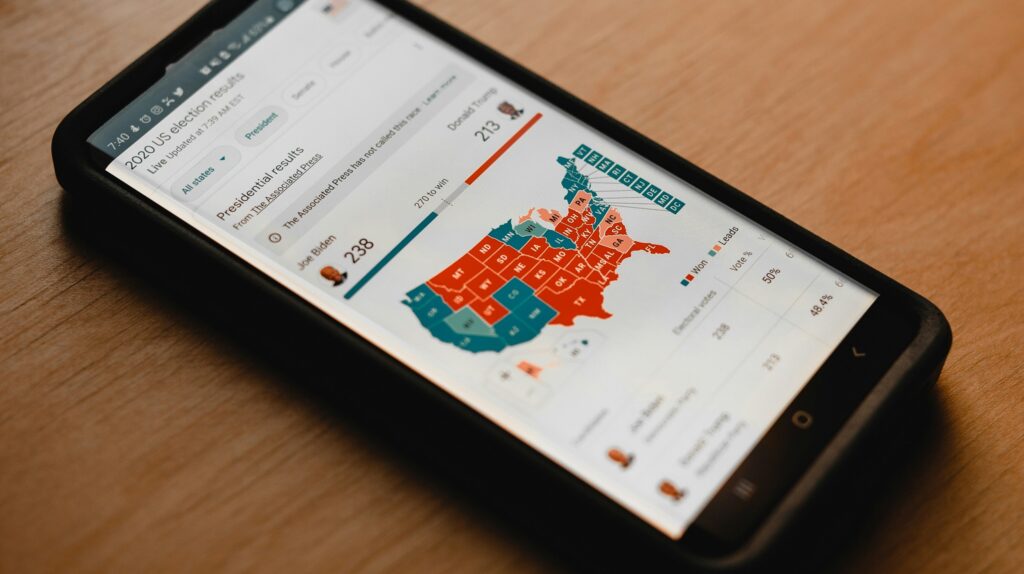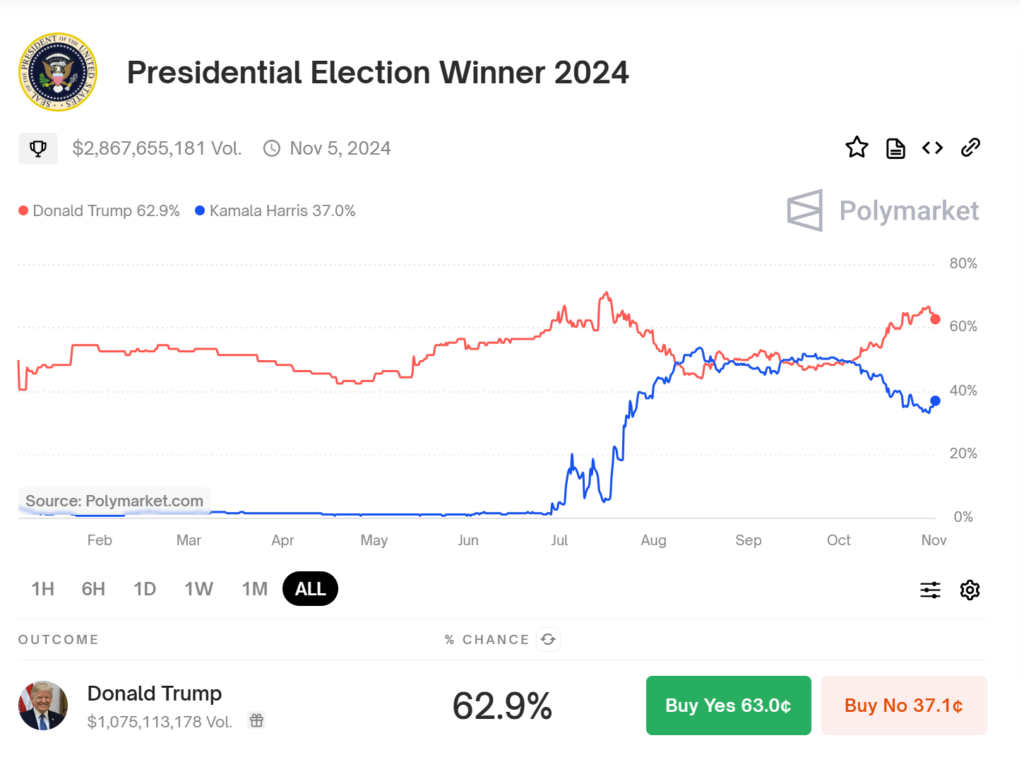United States (US) and international political analysts are largely forecasting a nailbiter outcome in the upcoming US election. Individual polls, like the New York Times/Siena poll, indicate a tie with both candidates at 48%, while aggregators like FiveThirtyEight give Kamala Harris a slight advantage, placing her at 47.9%, compared to Donald Trump’s 46.8%. However, betting markets are telling a different story. Many election watchers are now looking to prediction platforms like Polymarket and Kalshi as an alternative to traditional polling to estimate the odds of the next U.S. president.
Notably, Polymarket reports that millions in bets (wagered amount nears US$2.9 billion) now drive odds that, some say, could provide better insights than traditional polls. On Polymarket, a decentralized blockchain platform, betting odds currently suggest a win for former President Donald Trump, with a 62.9% chance of winning the election. This has raised questions about whether market manipulation could be inflating the odds.
While pollsters poll voters, anyone and everyone can bet on the US election. And while voters can only vote once, bettors can bet as much as their wallet allows them to. Polymarket recently admitted that as much as US$45 million in odds came from a single individual, a French national. “Based on the investigation, we understand that this individual is taking a directional position based on personal views of the election,” said a spokesperson from the company.
Polymarket maintains it has detected no manipulation. Moreover, the company emphasises that prediction markets are not the same as polls; whereas polls aim to capture voter intent, betting odds reflect perceived probability. This difference explains why a wider margin exists on Polymarket than on other platforms like PredictIt or Kalshi, which show closer spreads. Nonetheless, perceived probability can shape public perception, especially as betting odds are frequently highlighted across major media outlets.



Polymarket: a crypto-based technology
Polymarket was founded in 2020 and uses blockchain technology to establish a decentralised prediction marketplace. The site operates on Ethereum with Polygon (to harness its layer 2 capabilities). It allows users to trade on real-world outcomes, ranging from political elections to sports. The platform has grown rapidly, helped by a recent US$45 million Series B round of investments and partnerships with rich backers like Vitalik Buterin (Ethereum’s co-founder). However, regulatory hurdles are ever-present; since 2022, the platform has been barred from US operations following an agreement with the Commodity Futures Trading Commission.
It’s important to remember that betting sites don’t accomplish (nor they try to accomplish) what well-conducted polls try to: they don’t provide a representative sample of the voting population. Pollsters carefully design surveys to reach all demographics and voting blocks of a society. In fact, a well-constructed poll of just 2,000 people, if conducted in person or by phone, can deliver an estimated margin of error as low as 2%, giving it a scientific weight that markets can’t replicate.
In contrast, prediction markets are shaped by different forces. Rather than drawing from a balanced sample, they can be swayed by a few high-stakes players willing to put up substantial sums. Non-citizens can also bet, which no poll would ever allow, potentially skewing results with interests and perspectives outside the US electorate. So, is polling, polling, and betting just betting?

